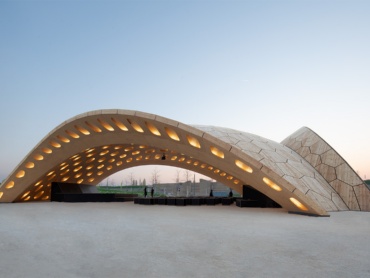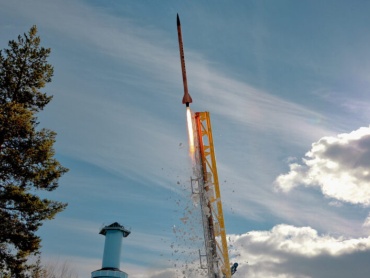
Computer simulations make it possible to test emerging technologies and gain realistic, cost-effective insights into complex and previously unknown phenomena. This makes them an indispensable tool in scientific practice. At the University of Stuttgart, we are developing a new class of simulations: Data-driven and knowledge-based simulations. These combine methods and modeling approaches with huge amounts of data and knowledge models. In this way, scenarios and processes can be predicted more precisely and reliably than was previously possible.
We bring together leading expertise in engineering, the natural sciences, computational biomechanics, visual computing, artificial intelligence, and machine learning to revolutionize the way science is conducted. Building on our methodical fundamental research, we drive progress in targeted application areas: We develop innovative materials and technologies for energy generation and storage—making a vital contribution to the energy transition. We refine diagnostic procedures and enable personalized therapies for cancer patients and people with neurological diseases. In this way, we are developing unprecedented and versatile simulations - opening doors to innovative solutions for pressing social challenges.
We merge simulation science, data science, and knowledge technologies to unlock new frontiers in research and development.
Prof. Dr. Wolfgang Nowak, Spokesperson for the Cluster of Excellence “Data-Integrated Simulation Science"
Research alliances
[Photos: University of Stuttgart / Visus, University Stuttgart / Uli Regenscheit, VISUS, PCI, UHei, T. Schwerdt, University of Stuttgart / Uli Regenscheit]
Study program
Ready to unlock unknown worlds with groundbreaking simulation technologies? Get to know our degree programs in the field of simulation science.
- Our study programs in the field of simulation technology
Bachelor and master
Excellent conditions for research, studies and cooperation
You might also be interested in
[Photos: ICD/ITKE/University of Stuttgart, HyEnD / University of Stuttgart]
Contact

Wolfgang Nowak
Prof. Dr.-Ing.Head
[Image: SimTech/Max Kovalenko]

Miriam Schulte
Prof. Dr. rer. nat. habil.Head of Institute

Holger Steeb
Prof. Dr.-Ing.Institute Director
[Image: Holger Steeb]














